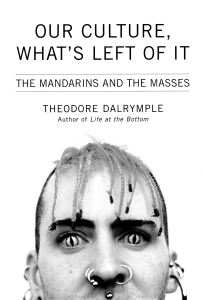 Dalrymple writes that for years he banged on that Oxfam was
Dalrymple writes that for years he banged on that Oxfam was
a criminal organisation.
People, he says,
would roll their eyes.
He asks:
Are they rolling their eyes now?
Orgies with underage prostitutes in Haïti are, Dalrymple writes,
the least of it. The orgies are a market-driven stimulus for the Haïtian economy, if an extremely tasteless and immoral one. That is more than can be said for most of Oxfam’s activities.
 Bogus charity’s extreme hypocrisy
Bogus charity’s extreme hypocrisy
Oxfam’s real aim, he points out,
is to provide employment to those who work for it. (Governments are of course the biggest donors to this corrupt scheme.)
Legalised fraud
Money donated to Oxfam ends up in the pockets of those who work for it, including the staff, numbering 888 at the last count, at the fake charity’s grandiloquent head office in London.
Dalrymple notes that
the hypocrisy of this legalised fraud is symbolic of very many modern activities.
Oxfam
is not the only criminal in this field, and may not be the worst. The field itself is criminal.




























